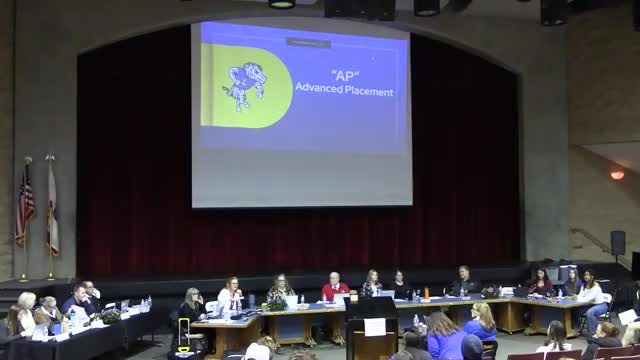Lincoln High students describe AP Capstone as ‘college-level’ boost; board hears program update

Summary
Lincoln High School staff and students told the Western Placer Unified School District board about expansion and student outcomes for the AP program, including AP Capstone (AP Seminar and AP Research), increased AP course access and reduced test fees for qualifying students.
Lincoln High School officials and students presented the board with an update on the campus’ Advanced Placement offerings on Jan. 21, telling trustees that AP enrollment and pass rates have risen and that the school is expanding AP options.
AP teacher Tara Jean said the AP Capstone sequence — AP Seminar followed by AP Research — asks students to conduct sustained research and public defenses more akin to college work. “They write a 4,000 to 5,000 word academic paper,” Jean said, describing AP Research. “They then have to conduct a presentation of oral defense, which is a 20 minute process of presenting their research and then answering three questions from a panel.”
Why it matters: Board members heard that AP Capstone gives students research, writing and public-speaking experience often expected in college and graduate programs and that the program can strengthen college applications. The presentation noted 368 students were enrolled in AP classes this year and the school ordered 622 AP exams; roughly 44% of 10th–12th graders take at least one AP course.
School leaders said Lincoln offers an AP Capstone diploma path that requires AP Seminar, AP Research and four additional AP exams. Laura Estes, assistant principal overseeing AP at Lincoln, told the board the school now offers at least 16 AP courses this year and plans two more (AP History and AP Music Theory) for next year.
Students in AP Seminar and AP Research joined the presentation. Sophomore Camilla Martella, who is taking AP Seminar, said the course “taught me a lot, like time management” and praised collaborative tasks. A student in AP Research described the class as “like a master’s project” and said the experience of doing original research and defending it before a panel was formative.
The board heard that the district and Lincoln High used LCAP and Title funds to reduce AP exam fees for eligible students — AP exams reduced to $10 for qualifying students — and to offset higher costs for AP Capstone performance exams so cost would not be a barrier to participation. District staff said AP participation also yielded a 60% pass rate (scores of 3 or higher) among AP test-takers this year, which the presenter said was the highest percentage in four years.
Board response and next steps: Trustees asked students about classroom environment and whether students felt out of place; several students said while the work is challenging, it builds confidence. Trustee comments encouraged students to mentor peers and to “lead” others into rigorous courses. The board did not take formal action on the program; the presentation was an informational report requested at prior meetings.
Provenance: Transcript passages where Tara Jean explains AP Research and students describe seminar and research projects were used to prepare this article.

